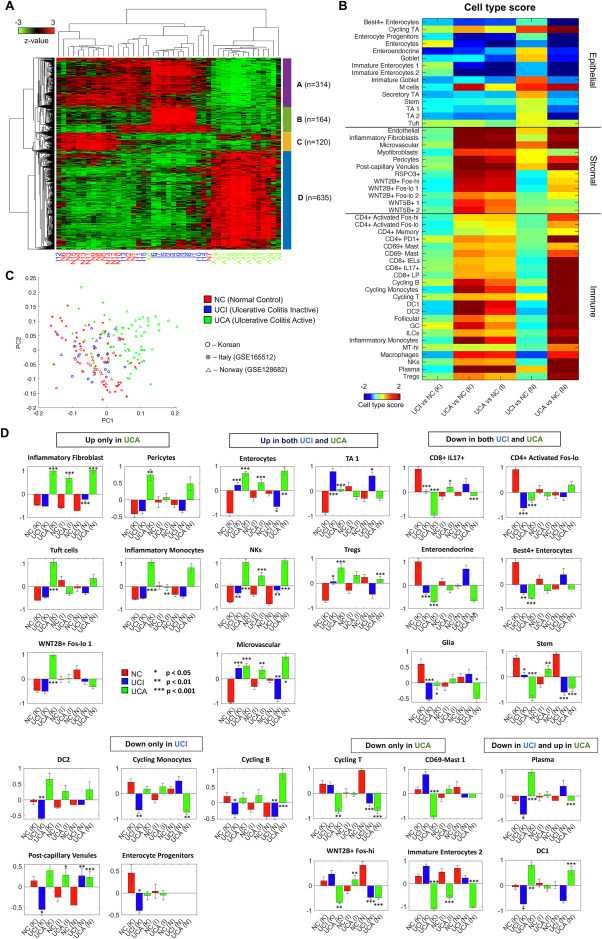
Inflammatory transcriptomic signatures and cell type compositions in inflamed and non-inflamed colonic mucosa of ulcerative colitis


Ulcerative colitis (UC), a subtype of inflammatory bowel disease, arises from disrupted gut homeostasis, primarily due to an aberrant innate immune response to intestinal microbiota and an underlying genetic background.1 Recently, complete healing of mucosal inflammation has been suggested as a new therapeutic goal in UC treatment.2 However, this goal remains challenging, as approximately 20% of individuals in clinical remission still exhibit active mucosal inflammation.3 Understanding the molecular alterations underlying this persistent mucosal inflammation is crucial for advancing UC pathogenesis insights and treatment strategies. While previous studies have explored transcriptomic profiles in patients with inflammatory bowel disease,4 consistent gene expression characteristics and enriched pathways, particularly in Asian patients with UC, remain unconfirmed. Our study addresses this gap by employing RNA sequencing (RNAseq) to analyze transcriptomic changes in mucosal biopsy specimens. We compare active (UCA) and macroscopically inactive (UCI) inflammatory areas during colonoscopy in UC patients with normal controls (NC). This approach aims to uncover novel molecular insights and potential therapeutic targets, providing a deeper understanding of UC pathogenesis.
